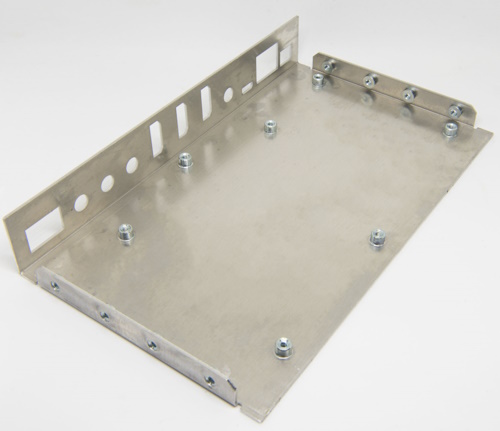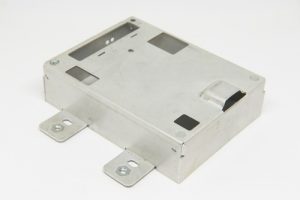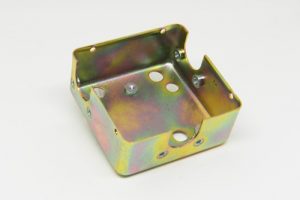
Rivet nuts, also known as threaded inserts, are commonly used in stamping processing. They offer a reliable and efficient method for creating strong and permanent threaded connections in material sheets that are too thin to be tapped. Their installation can be easily integrated into the stamping processing workflow. Additionally, they are widely used in various industries, including automotive, electronics, aerospace, and furniture manufacturing.
The advantage of using rivet nuts is that they provide a threaded insert without the need for tapping or welding, making assembly quicker and more convenient. Moreover, rivet nuts offer high torque and pull-out resistance, resulting in durable and secure connections. They are available in various materials and thread sizes to suit different applications and load requirements.
There are several types of rivet nuts available, each designed for specific applications and installation methods. Here are some common types of rivet nuts:
Full Hexagonal Rivet Nut (Standard Rivet Nut)
This is the most common type of rivet nut, featuring a hexagonal body with internal threads.
It is installed by using a tool to compress the body, causing it to expand and grip the base material securely.

Half Hexagonal Rivet Nut
Similar to the full hexagonal rivet nut, but with only half of the hexagonal body.
This design is useful when there is limited space on one side of the base material.
Round Rivet Nut
As the name suggests, this type has a round body with internal threads.
It is suitable for applications where a low-profile fastener is needed.

Knurled Rivet Nut
Knurled rivet nuts have a knurled body that provides extra grip when installed in soft or thin materials.
They are ideal for use in plastic, soft metals, and fiberglass.
Blind Rivet Nut (Closed-End Rivet Nut)
Blind rivet nuts have a closed-end, which prevents the passage of fluids or contaminants through the rivet.
They are commonly used in applications where a sealed or watertight joint is required.
Rivet Nut Stud
Rivet nut studs have a stud-like extension, allowing direct fastening of components without the need for separate screws or bolts.
They are useful for attaching components that require a male thread.
Steel Rivet Nut
Made from steel, these rivet nuts are strong and suitable for heavy-duty applications.
Aluminum Rivet Nut
Aluminum rivet nuts are lightweight and corrosion-resistant, making them suitable for various industries, including automotive and aerospace.
Stainless Steel Rivet Nut
Stainless steel rivet nuts offer excellent corrosion resistance, making them ideal for outdoor and marine applications.
Metric and Unified Thread Sizes
Rivet nuts come in various thread sizes, including metric and unified (imperial) measurements, to accommodate different fastener requirements.
The selection of the appropriate rivet nut depends on factors such as the material being fastened, the required strength, environmental conditions, and the available installation tools. Choosing the right rivet nut ensures a secure and long-lasting threaded connection.
You can find the photo display of the stamping parts made by us HERE!
